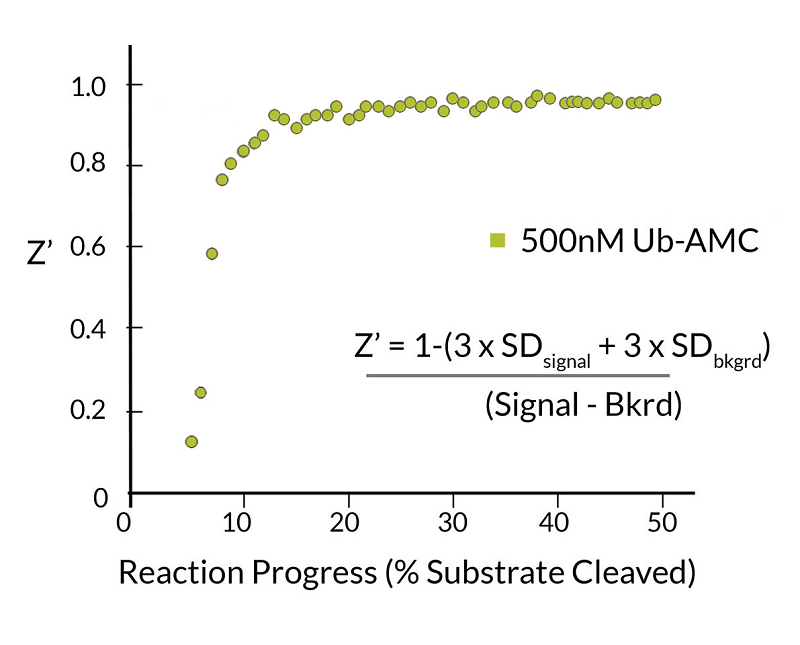Ubiquitin-AMC (human) (rec.) (untagged)
| Code | Size | Price |
|---|
| SBB-PS0043-C050 | 50 ug | £287.00 |
Quantity:
Prices exclude any Taxes / VAT
Overview
Regulatory Status: RUO
Target Species: Human
Shipping:
Dry Ice
Storage:
-80°C
Images
Documents
Further Information
Alternate Names/Synonyms:
Ub-AMC; Ub-7-Amido-4-methylcoumarin
Concentration:
Lot dependent.
EClass:
32160000
Form (Short):
liquid
Formulation:
Liquid. In 50mM MES pH 6.0.
Handling Advice:
Aliquot to avoid freeze/thaw cycles.
Labels - Conjugates:
AMC
Long Description:
Recombinant Protein. Full-length, mature ubiquitin polypeptide (amino acids 1-76) conjugated on its C-terminus to AMC. Source/Host: E. coli. Liquid. In 50mM MES pH 6.0. Ubiquitin is a 76 amino acid post-translational modifier expressed throughout all tissues in eukaryotic organisms. The many roles of ubiquitin modification include proteasomal degradation, signal transduction, inflammatory response, and DNA damage repair. Ubiquitin modification occurs through a pyramidal cascade of an E1 activating enzyme, E2 conjugating enzymes, and an E3 ubiquitin ligases. This enzymatic cascade results in modification of a epsilon-amine of a lysine residue on a substrate protein. Substrates may either be mono or poly-ubiquitinated by M1, K6, 11, 27, 29, 33, 48 or 63 linkages. Removal of ubiquitin from a substrate protein occurs via deconjugating enzymes, of which there are nearly 100 known enzymes with various specificities.
Molecular Weight:
~8.7kDa
NCBI, Uniprot Number:
P0CG47
Package Type:
Plastic Vial
Product Description:
Ubiquitin is a 76 amino acid post-translational modifier expressed throughout all tissues in eukaryotic organisms. The many roles of ubiquitin modification include proteasomal degradation, signal transduction, inflammatory response, and DNA damage repair. Ubiquitin modification occurs through a pyramidal cascade of an E1 activating enzyme, E2 conjugating enzymes, and an E3 ubiquitin ligases. This enzymatic cascade results in modification of a epsilon-amine of a lysine residue on a substrate protein. Substrates may either be mono or poly-ubiquitinated by M1, K6, 11, 27, 29, 33, 48 or 63 linkages. Removal of ubiquitin from a substrate protein occurs via deconjugating enzymes, of which there are nearly 100 known enzymes with various specificities.
Purity:
>99% (LCMS)
Sequence:
Full-length, mature ubiquitin polypeptide (amino acids 1-76) (Accession Nr. P0CG47 http://www.ncbi.nlm.nih.gov/protein/P0CG47 ) conjugated on its C-terminus to AMC.
Source / Host:
E. coli
TAGs:
no TAG
Transportation:
Non-hazardous
UNSPSC Category:
Other Proteins
UNSPSC Number:
12352202
Use & Stability:
Stable for at least 1 year after receipt when stored at -80°C.



